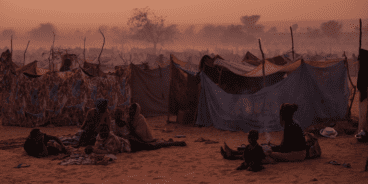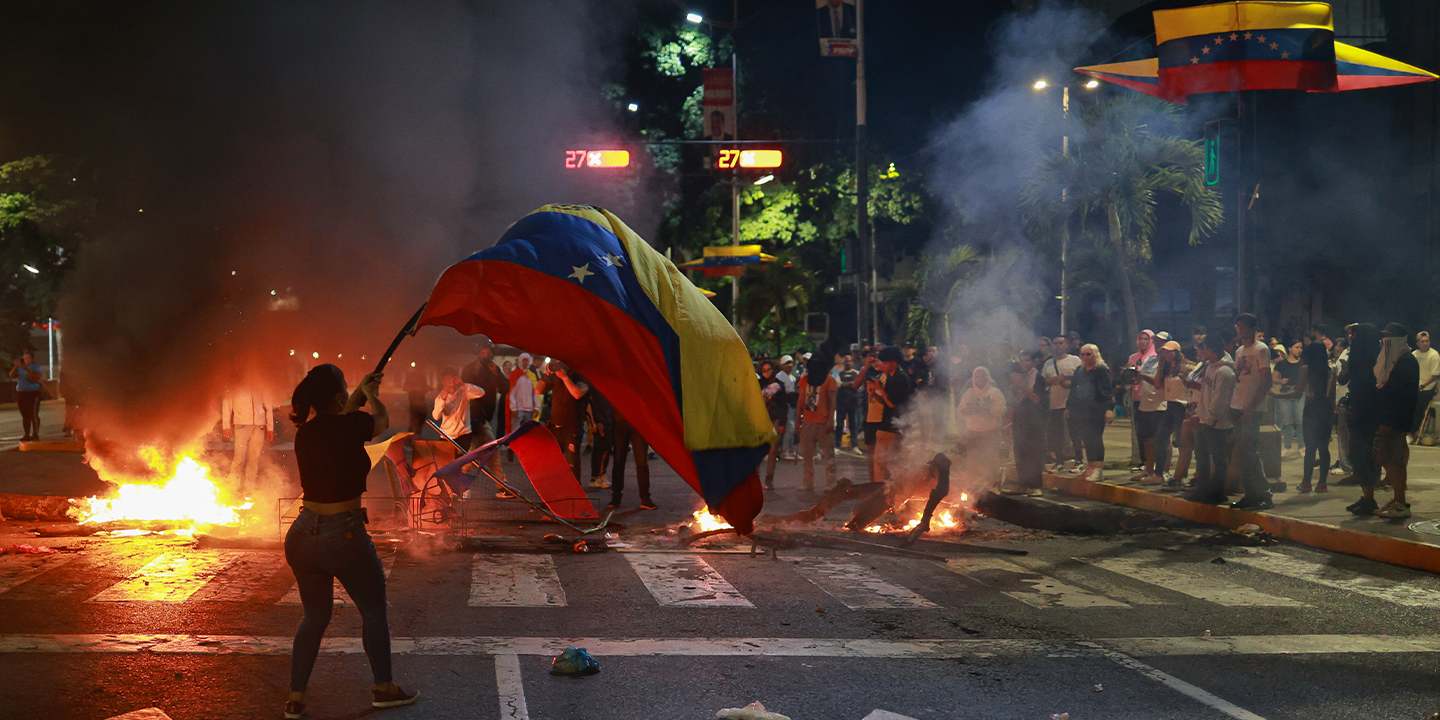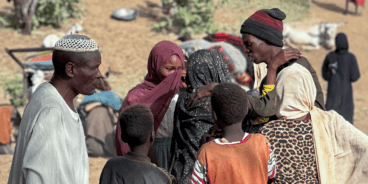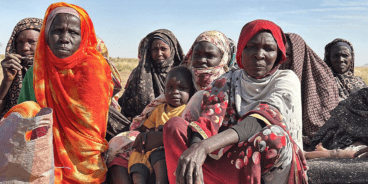

Atrocity Alert No. 405: Venezuela, Sudan and Yazidi Genocide Commemoration
Atrocity Alert is a weekly publication by the Global Centre for the Responsibility to Protect highlighting situations where populations are at risk of, or are enduring, mass atrocity crimes.
VENEZUELAN GOVERNMENT INTENSIFIES REPRESSION FOLLOWING PRESIDENTIAL ELECTION
Hours after Venezuelans participated in massive numbers in the presidential election on 28 July, the government-controlled National Electoral Council (CNE) declared incumbent President Nicolás Maduro the winner, who reportedly received 51 percent of votes. The leading opposition candidate, Edmundo González Urrutia, allegedly received 44 percent of votes. These numbers were not verified. Venezuela’s opposition – led by banned candidate María Corina Machado and her chosen replacement González Urrutia – has since been able to release a significant number of tally copies from polling centers, which document an estimated 67 percent of votes for González Urrutia.
In response to growing concern over electoral fraud, on 29 July at least 210 spontaneous protests occurred across the country, according to the Laboratorio de Paz. UN High Commissioner for Human Rights Volker Türk expressed alarm over reports “of disproportionate use of force by law enforcement officials along with violence by armed individuals supporting the government, known as colectivos.” As of the afternoon of 30 July, Foro Penal verified 177 detentions and 11 assassinations, noting that the actual figures are much higher as human rights defenders continue to verify rapidly mounting reports of arrests, disappearances and others serious violations. Over the past three days, high level government officials have significantly intensified hostile rhetoric against protesters, the opposition and human rights activists. In a public speech on 30 July, President Maduro ordered Venezuelans to register protesters in the government’s “VenAPP” to “go for them,” raising alarm about intensifying targeted persecution. At the time of writing, it is unclear to what extent “VenAPP” is still in circulation.
UN Secretary General António Guterres has called on the CNE to publish results with a precise breakdown by polling station. Following similar calls by a growing number of governments, Venezuela announced the immediate expulsion of diplomatic personnel from Argentina, Chile, Costa Rica, the Dominican Republic, Peru, Panama and Uruguay. In an official statement released on 30 July, the Carter Center – which deployed a technical electoral observation mission – concluded that the vote “cannot be considered democratic.” The Carter Center detailed immense challenges Venezuelan citizens and the opposition faced in the months-long electoral process, which was marked by arbitrary detentions and enforced disappearances of actual or alleged opponents and a crackdown on civic space.
Sunday’s vote marked the beginning of a highly volatile, yet critical period for Venezuela, including ahead of the official take-over of a new administration in January 2025 and the anticipated parliamentary, governorship and municipal elections expected next year. Elisabeth Pramendorfer, Latin America expert at the Global Centre for the Responsibility to Protect, said, “The international community should continue to demand a full voting audit and identify coordinated and constructive engagement to accompany Venezuelans in their quest for a democratic transition and respect for fundamental rights. All remaining diplomatic channels to the Maduro government – including by Colombia and Brazil – should be used to push for a political solution to avoid rapidly intensifying repression and growing protection gaps for Venezuelans across the country. Failure by the CNE to publish detailed vote accounts is risking a period of renewed isolation, with disastrous effects for Venezuelans inside and outside the country.”
AT LEAST 168 KILLED IN INDISCRIMINATE ATTACKS AGAINST CIVILIANS IN EL FASHER, SUDAN
Renewed violence between the Sudanese Armed Forces (SAF) and the Rapid Support Forces (RSF) has resulted in the deaths of at least 168 civilians between 26 to 28 July in El Fasher, the capital of North Darfur state. According to the World Health Organization (WHO), at least 97 civilians were killed or injured when a hospital, along with residential areas and a livestock market, were struck on Friday. In a statement on 29 July, the UN Humanitarian Coordinator for Sudan, Clementine Nkweta-Salami, said, “I am deeply saddened by these horrific attacks on civilians and civilian infrastructure such as hospitals, apartments and markets. Civilian infrastructures should never be a target and are protected under the international humanitarian law.”
The latest violence disrupted a brief period of relative calm in El Fasher, during which markets reopened and families resumed their normal routines. During April and May of this year, intense fighting for control over North Darfur’s capital city reportedly killed hundreds of people due to deliberate and indiscriminate attacks on civilians and civilian infrastructure, including airstrikes and shelling of residential areas. Earlier this month the WHO warned that relentless fighting has left 800,000 people in El Fasher besieged and without sufficient food, water or medical support as access to the capital is “completely impossible.”
Following this weekend’s violence, the WHO denounced the increasing attacks on healthcare facilities in Sudan, reporting that 88 such attacks have been documented since the outbreak of the armed conflict in April 2023. Hospitals in Sudan have been largely dysfunctional due to the fighting, and the overall health system has been critically undermined, impacting the ability to address both routine and emergency medical needs effectively.
As violence spreads across Sudan, civilians are increasingly suffering the consequences. A new report by Human Rights Watch describes how both the RSF and SAF have committed widespread acts of sexual violence, including rape and gang rape, and the forced marriage of women and girls in areas of Khartoum under their control. According to their investigations, service providers treating victims have received reports from women and girls alleging that they were held by the RSF under conditions that could be considered sexual slavery. These acts may amount to war crimes and crimes against humanity.
The RSF and SAF must urgently cease all attacks against civilians and civilian infrastructure, enhance civilian protection measures and facilitate humanitarian aid deliveries. Both parties must commit to and participate in good faith at the new round of peace talks tentatively scheduled for mid-August in Switzerland, with the goal of establishing a ceasefire agreement. The UN Security Council should consider including sexual and gender-based violence as a stand-alone listing criterion within Sudan’s sanctions regime.
TEN YEARS SINCE ATROCITIES COMMITTED AGAINST YAZIDIS
This Saturday, 3 August, will mark 10 years since the so-called Islamic State of Iraq and the Levant (ISIL) launched a campaign of armed violence targeting religious minorities in northern Iraq. ISIL fighters attempted to systematically destroy the Yazidi population, subjecting over 7,000 women and girls to execution, sexual violence and enslavement and killing more than 5,000 Yazidi men and boys. ISIL also targeted other ethnic and religious minorities across Iraq and Syria.
The UN Commission of Inquiry on Syria found that ISIL had “committed the crime of genocide as well as multiple crimes against humanity and war crimes against the Yazidis.” An estimated 2,600 Yazidis remain missing or in captivity, while survivors who have returned to their families face myriad challenges as they cope with the debilitating physical and psychological consequences of the genocide. Despite Iraq passing the Yazidi Survivors Law in 2021 – formally acknowledging the genocide and providing a legal pathway for survivors to claim reparations – the Yazidi community continues to endure discrimination.
Following the atrocities, the international community responded to the government of Iraq’s call for assistance in addressing ISIL crimes by establishing the UN Investigative Team to Promote Accountability for Crimes Committed by Da’esh/ISIL (UNITAD). Although UNITAD’s important work has not yet concluded, last year the government of Iraq requested that the UN Security Council (UNSC) not renew UNITAD’s mandate beyond September 2024. The UNSC subsequently adopted a resolution that only renewed the mandate through 17 September 2024.
Since no dedicated tribunal to prosecute ISIL’s crimes exists, trials through universal jurisdiction have been the only pathway for accountability. UNITAD’s investigative and analytical work has been central to these trials, including the first conviction of an ISIL member for genocide and crimes against humanity in Germany in 2021. Without UNITAD’s mandate in effect or access to collected evidence, these trials may become increasingly challenging. Meanwhile, Iraqi courts have relied almost exclusively on counter-terrorism laws to prosecute thousands of ISIL members. Iraqi trials – characterized by flaws in due process and challenges in meeting fair trial standards – serve neither the justice needs nor the rights of survivors considering ISIL’s crimes.
As we mark the 10th anniversary of the start of the Yazidi genocide, the international community and government of Iraq should revitalize efforts and finally develop a long-term vision for justice and accountability for ISIL’s crimes to prevent recurrence. The government must pass legislation to criminalize international crimes, provide guarantees to uphold international law standards in judicial proceedings and implement all aspects of the Yazidi Survivors Law. The UNSC must ensure that evidence collected by UNITAD is stored in an enhanced archive in a secure location for continued use in universal jurisdiction proceedings. The international community should ensure that Iraqi authorities have access to the necessary resources and expertise to assume key aspects of UNITAD’s work, including mass grave exhumation and psychosocial support. All stakeholders must recenter post-UNITAD discussions around the needs of survivor and victim communities.
Related Content


Atrocity Alert No. 435: Sudan, Israel and the Occupied Palestinian Territory and Democratic Republic of the Congo
